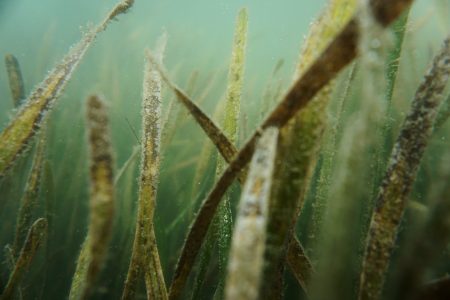Project Seagrass – restoring seagrass as an NbS in the UK

Despite being the most overlooked marine habitat, seagrass meadows provide a number of important ecosystem services: they are nurseries for young fish that support about 20% of the world’s largest 25 fisheries, they sequester carbon about 35 times faster than tropical forests, they reduce coastal erosion, and are unique, biodiverse ecosystems. Of the UK’s 155 estuaries, only 20 now contain seagrass beds of over one hectare in size: a decline of 85% since the 1920s. The main threat is poor water quality, primarily due to high nutrient load. Project Seagrass will experimentally restore two hectares of seagrass in collaboration with local people in Dale, West Wales. Restoration involves filling hessian bags with seed, which are then attached to strings anchored to the seabed. They also have a citizen science tool for monitoring seagrass meadows globally, and provide education on the importance of seagrass for ecosystem service provision, hoping to inspire larger restoration projects in other parts of the UK.




